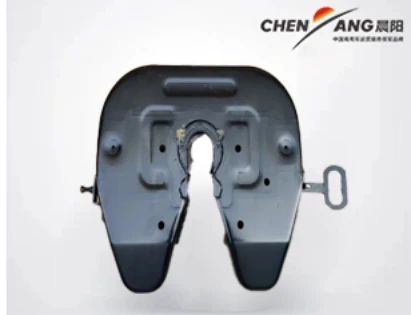electrical fuses
Understanding Electrical Fuses A Critical Component in Safety and Reliability
Electrical fuses are essential safety devices that play a crucial role in the functioning of electrical circuits. They are designed to provide overcurrent protection, safeguarding both the wiring and connected devices from damage caused by excessive current flow. This article delves into the various aspects of electrical fuses, including their types, working principles, applications, and importance in modern electrical systems.
What is an Electrical Fuse?
An electrical fuse is a simple device made of conductive material that interrupts the flow of electrical current when it exceeds a specific threshold. Fuses are designed to fail safely, meaning they will blow or melt when too much current passes through them, thus breaking the circuit and preventing further damage. This interruption can protect valuable electronic devices, wiring, and even prevent electrical fires—a significant safety hazard.
Types of Fuses
Fuses come in various types, each tailored for specific applications
1. Cartridge Fuses These are cylindrical fuses that can be found in both household and industrial equipment. They offer high reliability and can handle higher current ratings.
2. Glass Tube Fuses Commonly used in small electronic devices, these fuses have a transparent glass body, allowing visibility of the fuse element. They are available in various ratings but are often limited to lower current applications.
3. Blade Fuses Predominantly used in automotive applications, blade fuses are easy to identify and replace. They are designed to fit into slots in a fuse box, making them user-friendly.
4. Resettable Fuses (PTC Fuses) These fuses reset automatically after a fault has cleared. They are useful in electronic devices where continuous protection is needed without the hassle of replacing a blown fuse.
5. Slow-Blow vs. Fast-Blow Fuses Slow-blow fuses can tolerate short bursts of high current (like motor startups) without blowing, while fast-blow fuses react quickly to overcurrent situations, offering immediate protection.
electrical fuses

How Fuses Work
The fundamental operation of a fuse is straightforward. Each fuse contains a metal conductor that melts at a specific temperature. When the electrical current exceeds the rated capacity of the fuse, the excess heat generated causes the conductor to melt. This melting process creates a gap in the circuit, interrupting the flow of electricity. The selection of the right fuse is crucial; it must be rated for the current expected in the circuit to provide adequate protection while not blowing unnecessarily.
Applications of Electrical Fuses
Fuses are ubiquitous in a variety of settings, including
- Residential Electrical Systems Fuses protect wiring and appliances from overcurrent, reducing the risk of fires and equipment damage. - Automobiles Blade fuses are commonly used to protect critical electrical components in vehicles, ensuring reliable operation. - Industrial Equipment Larger, more robust fuses protect machinery and tools from overcurrent conditions, ensuring safety in workplaces. - Consumer Electronics Fuses are found in devices such as televisions, computers, and chargers to prevent damage from electrical surges.
The Importance of Electrical Fuses
The integration of fuses in electrical systems cannot be overstated. They not only protect against potential electrical hazards but also ensure system reliability. Fuses are often more cost-effective than other protective devices, such as circuit breakers, making them an attractive option for many applications. Their simplicity and effectiveness contribute to user safety and prolong the life of electronic devices.
In addition to protection, fuses play a role in troubleshooting. When a fuse blows, it can indicate a problem in the electrical system, prompting necessary investigations and repairs. This feature is particularly vital in industrial settings where downtime can be costly.
Conclusion
In conclusion, electrical fuses are vital components that enhance the safety and reliability of electrical systems. Understanding their function, types, and applications can help users select the appropriate fuse for their needs and appreciate its role in overall electrical safety. As technology continues to evolve, the development and application of fuses will adapt to meet the growing demands of modern electronic systems, ensuring that safety remains paramount in electrical design.
-
SINOTRUK HOWO 84 Electric Dump Truck for Eco-Friendly Heavy HaulingNewsJul.26,2025
-
The Fast 16-Gear Manual Transmission Assembly for Heavy TrucksNewsJul.25,2025
-
Mercedes Benz Actros 1848 42 Tractor Truck for Sale - Reliable PerformanceNewsJul.24,2025
-
High-Quality Water Pump Assembly for Sinotruk Trucks – Durable & ReliableNewsJul.23,2025
-
Premium Truck Engine Antifreeze Coolant Fluid for Heavy Duty VehiclesNewsJul.22,2025
-
FOTON View G7 Mini Bus: Affordable & Spacious TransportNewsJul.22,2025
Popular products

























